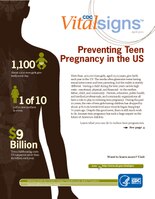
Photo from wikipedia
Background Although recent policies have sought to increase the rates of exclusive breastfeeding (EBF) and continued breastfeeding for HIV exposed infants, few programs have considered the multiple social and cultural… Click to show full abstract
Background Although recent policies have sought to increase the rates of exclusive breastfeeding (EBF) and continued breastfeeding for HIV exposed infants, few programs have considered the multiple social and cultural barriers to the practice. Therefore, to generate evidence for exclusive and continued breastfeeding policies in Kenya, we examined community perspectives on the facilitators and barriers in adherence to EBF for the HIV positive mothers. Methods Qualitative research was conducted in Koibatek, a sub-County in Baringo County Kenya, in August 2014 among 205 respondents. A total of 14 focus group discussions ( n = 177), 14 In-depth Interviews and 16 key informant interviews were conducted. Transcribed data was analyzed thematically. NVivo version 10.0 computer qualitative software program was used to manage and facilitate the analysis. Results Facilitators to exclusive breastfeeding were perceived to include counselling at the health facility, desire to have a healthy baby, use of antiretroviral drugs and health benefits associated with breastmilk. Barriers to EBF included poor dissemination of policies, knowledge gap, misinterpretation of EBF, inadequate counselling, attitude of mother and health workers due to fear of vertical HIV transmission, stigma related to misconception and misinformation that EBF is only compulsory for HIV positive mothers, stigma related to HIV and disclosure, social pressure, lack of male involvement, cultural practices and traditions, employment, food insecurity. Conclusions There are multiple facilitators and barriers of optimal breastfeeding that needs a holistic approach to interventions aimed at achieving elimination of mother to child transmission. Extension of infant feeding support in the context of HIV to the community while building on existing interventions such as the Baby Friendly Community Initiative is key to providing confidential support services for the additional needs faced by HIV positive mothers.
Journal Title: International Breastfeeding Journal
Year Published: 2021
Link to full text (if available)
Share on Social Media: Sign Up to like & get
recommendations!